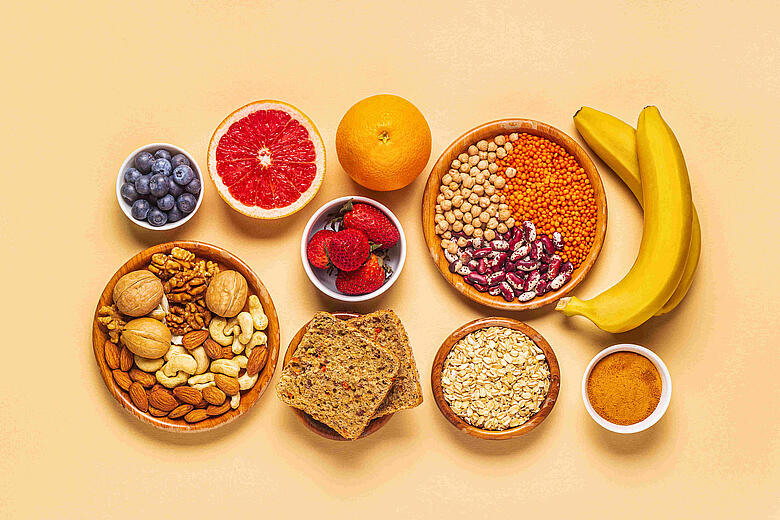Whole foods, or single ingredient foods, have many nutritional benefits. And as such they should make the large part of our diets, 70-80% is a good mark to aim for.
So what would be considered a whole food? Lets keep it simple, un-processed or minimally processed. Fruits, vegetables, lean protein, dairy, fresh seafood. Minimally processed grains can also go in this category, things like rice, quinoa, lentils and beans.
Now why are these so important for our overall health and wellbeing? Lets go through the list:
- Reduced risk of cardiovascular disease: These foods have a range of benefits that are listed below, and because of tall these, its easier to control our weight, get in vital nutrients and vitamins, and stay overall healthy. This in turn ensures that things like blood pressure and cholesterol are managed and your heart doesn’t have to work over time.
- Satiating (keeps you full): There's a saying going around at the moment “Its hard to eat three apples in a sitting, but easy to eat three cookies.” Whole foods take longer for the body to digest, are generally higher in fibre and the protein sources are rich in vitamins and healthy fats.
- High in fibre: Fibre is phenomenal and essential to our health. Assisting in digestion, bowel regularity, balancing of blood sugars and even gut health. Getting in enough fibre through fruits, vegetables and healthy carbohydrates is one of the best things we can do.
- Low Calorie: In comparison to some processed foods that are available now, whole foods are quite low in energy and yet keep us full for longer. For example, a mars bar that weighs 53g has 243 calories, while a banana that weighs 81g has 72 calories!! That’s 3x the more calories in the chocolate bar.
- Nutrient dense: There is no question that whole foods, especially fruits and vegetables, are our best source for vitamins and nutrients. They are jam packed full of them and aiming for 2 serves of fruit and 3 veg per day will go a long way to covering most of our needs.
- Healthy fats: There are 2 essential fats we need, omega 6 and omega 3. Ideally we should have a balance of 1:1. The trouble in the western diet is that its closer to 15:1, in the wrong direction. Omega 6 is extremely prevalent in our foods due to the different oils we use, though this isn’t bad because it is required in our body. The problem is that w are not getting enough omega 3. Some of the best sources are fatty/oily fish, grass fed red meat and omega 3 enriched eggs. By reducing the processed foods in our diet, we will reduce our intake of omega 6, which means the demand for omega 3 will not have to be as high ( though it should still be a focus).
So there you have it, a few reasons why whole foods should be the base for our diets if we want to be as healthy as possible. This doesn’t mean you cant ever a processed food in your life, but considering how much you really need/want vs what you are eating out of convenience or lack of preparation will make a big difference in the long run.

